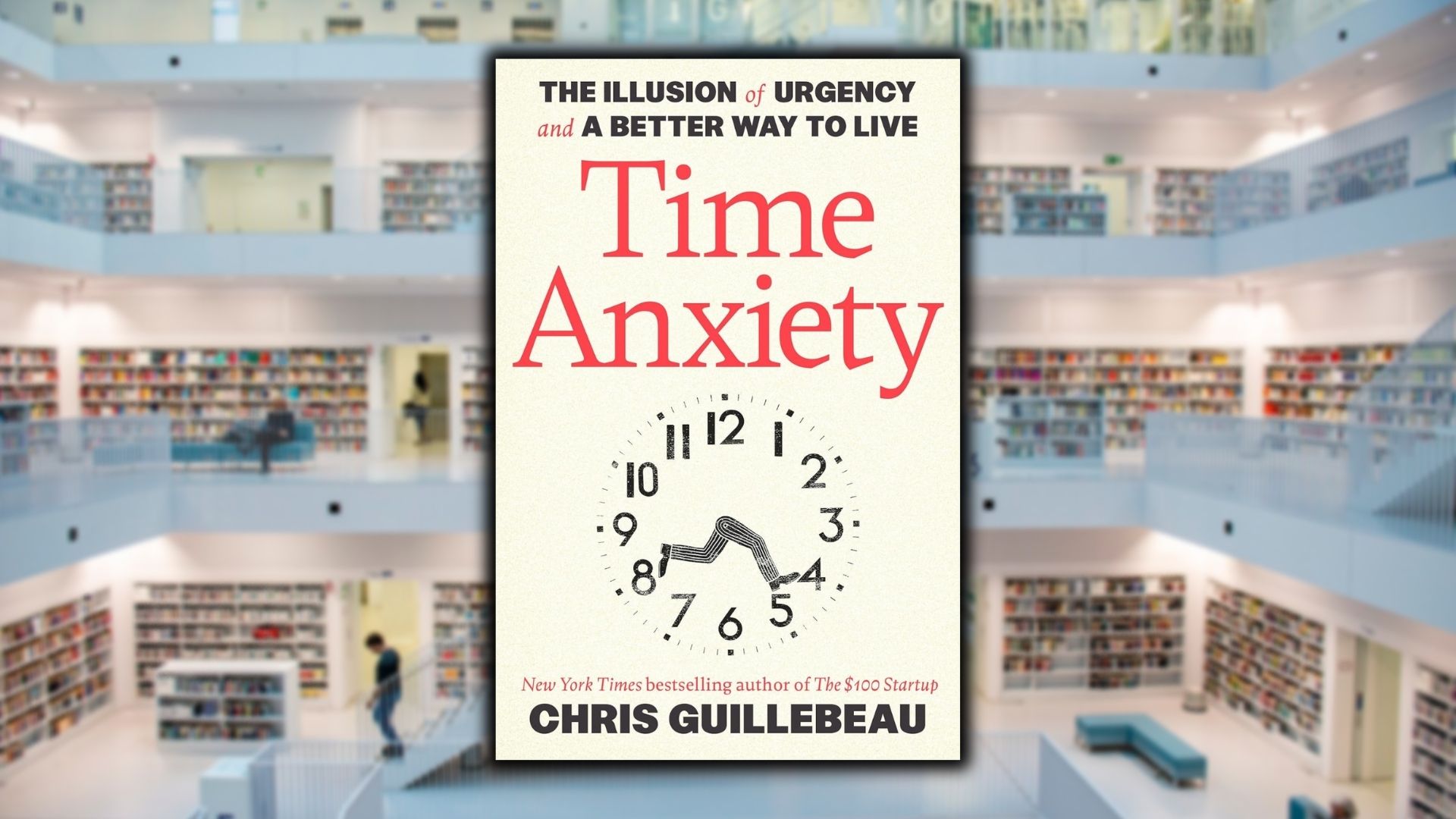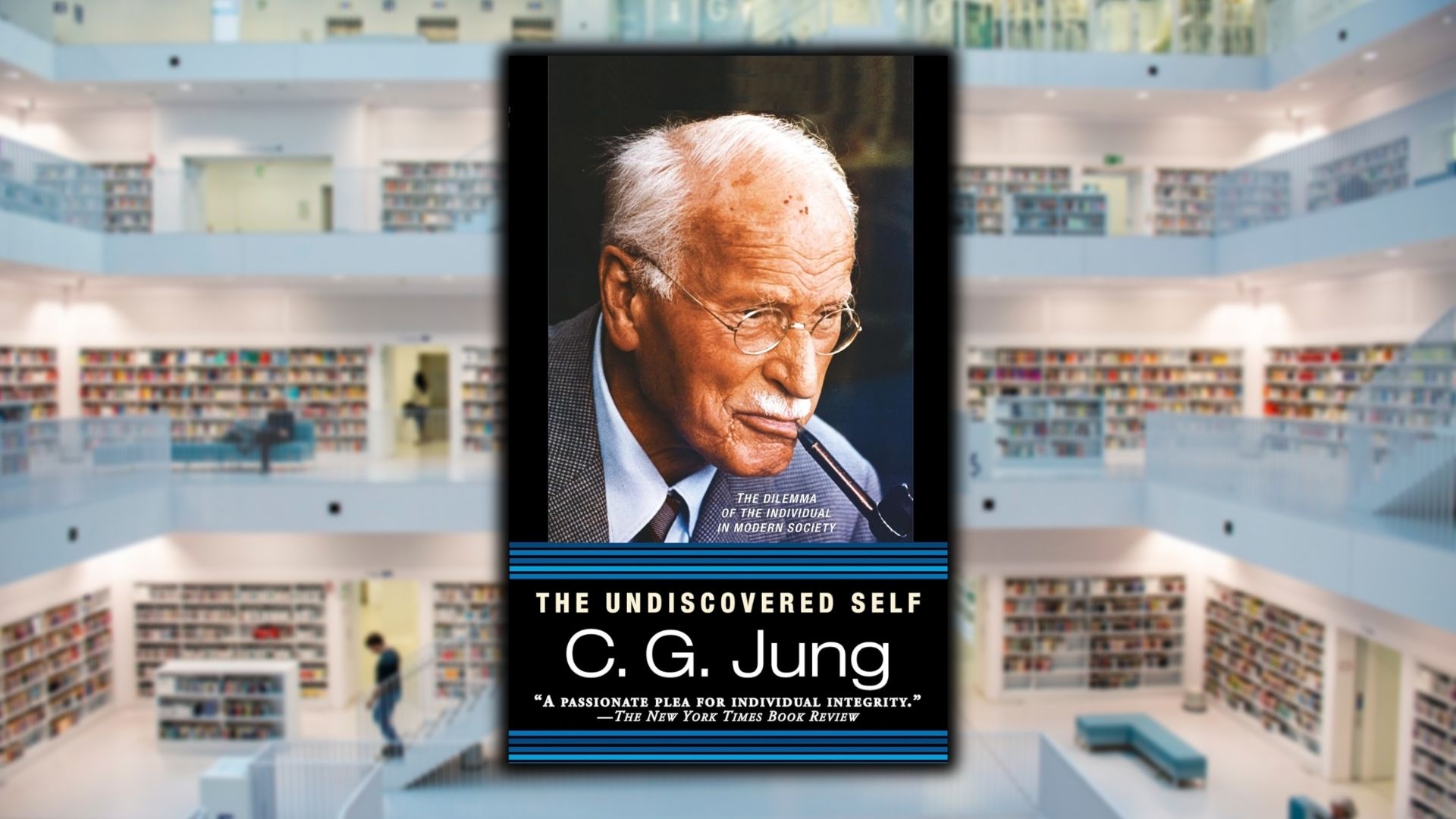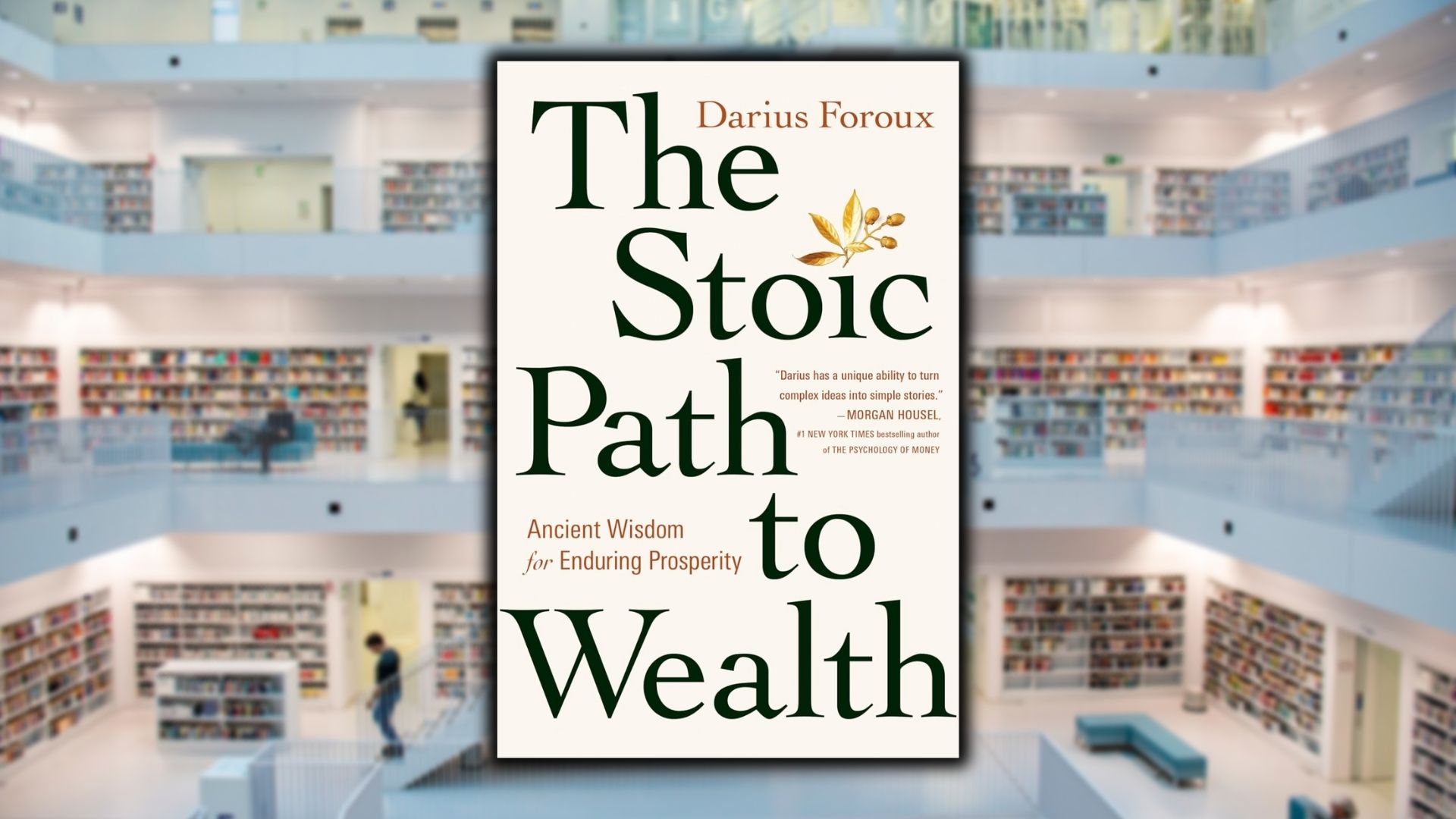I’ve got five great books to recommend tonight (actually, way more than five), but first I want to show you how to make $10K from what you’ve already read.
Next Tuesday, Bryan Harris is running a free workshop:
Here’s the deal:
You don’t need another reading list.
You don’t need more notes in the margins.
You don’t even need to finish the book that’s on your nightstand right now.
You need a simple system to take the knowledge you’ve already absorbed and package it into something people will happily pay $10K for.
That’s what Bryan’s going to show you.
📅 Tuesday at 3pm CT
Save your spot →
Think of it like the “practical application” chapter of your entire bookshelf.
Except this one pays.
(P.S. Those who attend live will get his 1-Page High Ticket Offer Template 100% free.)
And now, let’s hit the books!
These five books are fantastic, and below in this newsletter I share my complete notes and summaries of each one:
In This Issue of The Reading Life, We’ve Also Got:
📖 What I’m Currently Reading
📕 Books I’ve Finished This Month
📜 The Book Quote of the Day
🎥 Monthly Reading Recap (8 New Books!)
✍ My Latest Medium Articles
✅ New Book Releases Coming Soon
📚 Tonight’s Five Main Book Recommendations
🏅 Earn Rewards for Referring This Newsletter
Let’s not wait for our coffees to get cold…let’s hit the books!
$100M Money Models, by Alex Hormozi: This is the third book in Alex’s $100M series, and the first two books completely transformed my business. In this latest book, he basically teaches you the art of getting more customers to spend more money faster.
11/22/63, by Stephen King: This is a giant horror novel about the assassination of JFK, and a man who discovers a way to go back in time to try and prevent it from happening. I’m not even 200 pages in, but I am ripping through it - Stephen King can just write, man.
Billion Dollar Communication Skills, by John A. Brink: I’m actually IN this book! My name and story appears in a section about social media marketing and branding, so I may be a bit biased when I recommend this book - but it is great.
John’s one of the most genuinely accomplished entrepreneurs I know, and he’s got decades of experience building and scaling profitable companies. To do that successfully, you’ve got to possess billion-dollar communication skills, which is exactly what he teaches in this book.
“The days are long, but the years are short.”
Last month I read 8 books, including three investing books that changed the way I thought about generosity, managing emotions during economic downturns, and how far I actually want to climb the wealth ladder.
There's also a pretty valuable business book I read about how to make sure my business doesn't fall apart if I ever decide to take another vacation (soon!), and a variety of other wonderful books. [Watch Time: 9:56]
If you enjoy the video, please consider subscribing to my channel and sharing it with a friend. Cheers!
“Status Anxiety” is the Source of Your Paralyzing Fear of Never Having Enough: And this fantastic book is the antidote (14 key takeaways).
The Business Book That Helped Me Buy My First Porsche: Ignore the scammy title - this book took me from minimum wage to financial freedom in 5 years flat.
The Saddest AND Funniest Book I’ve Ever Read is Also One of the Most Challenging Books of All Time: 39 flashes of brilliance from Infinite Jest that’ll make you think, laugh, cry - and probably all three at once.
Protocols, by Andrew Huberman: Andrew’s a neuroscientist and tenured professor at Stanford, not to mention hosting one of the most popular health podcasts in the world. This book is a collection of simple, evidence-based solutions to a whole host of challenges, and a distillation of his very best advice from the podcast. Expected: September 9th, 2025
The Art of Spending Money, by Morgan Housel: This is Morgan Housel’s third book, after the 6-million-copy bestseller, The Psychology of Money, and the (in my opinion) shamefully underrated Same as Ever. I cannot WAIT for this one! Expected: October 7th, 2025
The Way of Excellence, by Brad Stulberg: The last of Brad’s books I’ve read was Peak Performance, which was fantastic, and so I’m looking forward to this one as well. It’s a practical guide to realizing our potential amid the chaos of modern life. He’s also got another one I’ve been meaning to read, Master of Change, but I’m a little behind! I plan to read both though. Expected: January 27th, 2026
“But just as there is not time for everything, there is still time for so much. There is time for risks, leaps, and adventures. There is time to advance, retreat, regroup. The days that lie ahead of you are filled with possibilities.
There is time for big ideas. There is still time for dreaming. There is time to walk outside and look up at the sky. There is time to celebrate the miracle of everyday living. There is time to get closer to the people you love. There is time to love someone new. There are still figs on the tree, waiting for you to select them.
Above all, there is time for choosing. Truly, there is time for a life well-lived. If you’re reading this right now, there’s still time.”
This is a great book for anyone who feels like they’re constantly running out of time, and like 24 hours a day is never enough. I happen to be one of those people, and even though I wouldn’t say this book “cured” me of this existential anxiety, it certainly helped!
This “time anxiety” is a bigger problem than a book can solve, and as much as I love Chris Guillebeau’s books, I wasn’t expecting him to solve it. The finitude of human existence, seen against the backdrop of infinite possibility and, on a more prosaic level, our never-ending to-do lists, is the fundamental problem.
How do we balance all of our responsibilities, look after ourselves, pursue what we love, make a difference in the world, and finish all the books on our TBR? How, I ask you!? How!?
Paradoxically, one of the first things you can do (that actually helps) is to just give up. Abandon the idea of ever getting everything done, or reaching a point where you can look around, breathe deeply, and say that you’ve achieved everything you wanted to achieve, responded to every message in your inbox, savored every sunrise, traveled to every exotic location, and crossed off every adventure on your list.
But even though you’re never going to win the war against time, you can win some battles. You can rewire your brain for peace and acceptance, you can regulate your emotions so that your time anxiety feels less life-and-death, and you can take concrete, practical steps to create more space in your day and get back to what matters.
“Armed with these strategies, you’ll be whipping your days and weeks and months into shape in no time. And you can finally give your pet hamster a turn on the wheel.”
At this point, I’ve probably read dozens of time management books, and hundreds of personal development books, but I still found some great stuff inside Time Wise. It will save you more time than it takes to read it.
Time Wise is a collection of productivity secrets from the world’s most successful people, including Adam Grant, Cal Newport, Rita McGrath, and Oliver Burkeman.
It’s divided into sections on Focus, Efficiency, Connection Reflection, etc., with at least a dozen practical strategies inside each section to help you work better, live more fully, and succeed at an even higher level.
Amantha Imber is actually quite funny too, which makes this one feel a lot less sterile than most time management books. And there’s also a focus on practicality and implementation, with a section at the end of each tactic or strategy that will guide you in putting it to use in the laboratory of your own life.
“In this respect, the psyche behaves like the body with its physiological and anatomical structure, of which the average person knows very little too.
Although he lives in it and with it, most of it is totally unknown to the layman, and special scientific knowledge is needed to acquaint consciousness with what is known of the body, not to speak of all that is not known, which also exists.
What is commonly called ‘self-knowledge’ is therefore a very limited knowledge, most of it dependent on social factors, of what goes on in the human psyche.”
Discovering who you are, in a world that relentlessly pushes you to become someone else, is one of the most difficult challenges a person will face in life. There’s this powerful, relentless cultural gravity that’s constantly trying to get you to conform, to be like everyone else, and this book is an antidote to that pressure.
Carl Jung once said that the world will ask you who you are, and if you don’t know, the world will tell you. I haven’t been able to stop thinking about that line since, and my life looks a lot different than it could have if I never stopped to consider its implications.
Not only are there consequences for your individual life, but the “madness of crowds” threatens to engulf the world in darkness, violence, and misery, and our last defence is a population of educated, free-thinking individuals who refuse to be told what to do, what to think, and what to worship.
Again, this book is an antidote. It won’t save you from the difficulty of thinking, but it’ll reveal to you the urgency of doing so, and the critical importance of gaining self-knowledge.
Carl Jung was one of the world’s greatest psychiatrists, who possessed a keener insight into the inner world of mankind than most people, and he was deeply disturbed by what he saw. Not that we were destined to destroy ourselves, but that it was an ever-present possibility, and that it wasn’t inevitable that we wouldn’t.
“Here’s a secret: Lots of money won’t make you happy - until you add meaning to your money. When you connect your cash to a cause, your money to a movement, and your profits to a purpose you love, you will make more money and create a life full of meaning and purpose.”
The world would be a much better place if more people weren’t so fearful around money, and suspicious of the motives of people who have it. The main argument of Good Money Revolution is that money is good, and good people should have more of it so they can go out and positively impact the world.
The author was a financial advisor for about 25 years before setting out on his own to inspire people to find their “Generosity Purpose” and to fill their “People Portfolio” with the causes and recipients they wanted to bless with their bank accounts. I thought that was a lovely angle to take, and Derrick for sure inspired me.
Many people around the world, however, don’t feel like they deserve to have money, or that money will somehow corrupt their souls should they ever get their hands on some. That couldn’t be further from the truth (money just brings out more of who you already are), and if you invest your money with meaning, you’ll find that it can make you happy.
A clever way of getting around these negative beliefs about money is to make money for something, to make more money so you can do more good.
It can also be good for business, as you’ll find that when customers and clients have a choice between doing business with some faceless corporation that cares about nothing besides their own market share, or you, someone dedicated to making the world a better place through your financial (and other) contributions, they’ll likely choose you.
“Here’s my proposition: To build long-term wealth in the stock market, you need to invest throughout your lifetime, no matter what’s going on. To be so consistent that you keep investing in spite of feelings like fear and greed, you need to develop the only edge that’s accessible to all investors: the Stoic Edge.
When you possess that edge, you will have the mental fortitude to stick to your investing strategy, which will make you wealthier over time.”
I’ve never seen this before, but this is a book that teaches you how to build wealth in the stock market by utilizing Stoic philosophy. Specifically, the parts of Stoicism that deal with accepting loss, managing your emotions, and rising higher after suffering setbacks. All skills that are incredibly useful in the domain of investing!
The book doesn’t go too far in-depth on Stoic principles - it’s not meant to contain much critical analysis of the philosophy itself. Rather, it’s more about taking this extremely useful, life-affirming philosophy and applying its wisdom to our financial lives.
That being said, for those unfamiliar with Stoicism it’s a solid overview, and I learned plenty about the stock market (especially its history) that I had never heard before. I had read the books of all the philosophers that the author mentioned, but some of the famous investors he profiled I was learning about for the first time, which was fascinating.
Above all, the Stoics realized that if we can control our reactions to external events and manage our emotions, we can learn to thrive in the world, whether that be financially or otherwise.
The same principles the earliest philosophers laid down are still applicable today, and honestly, if you apply them to your investment strategy, you’re likely to build a tremendous amount of wealth over time, instead of losing your proverbial shirt like those poor souls who know nothing of Stoicism.
Forward this to a friend you think would love these books!
If you were sent this newsletter, click here to subscribe.
To read past editions of The Reading Life, click here.
Click here to recommend The Reading Life on Twitter (X).
OK, that’s it for now…
I’ve got plenty more excellent book recommendations coming your way soon though!
And if you want to learn how I’ve built an audience of 160,000+ followers across social media, became a full-time creator, and how I’m rapidly growing my audience and my profits in 2025, join us inside Creator Launch Academy and that’s exactly what I’ll teach you — we’d love to have you in the community!
With that said, I hope you enjoyed this edition of The Reading Life, and enjoy the rest of your day!
Until next time…happy reading!
All the best,
Matt Karamazov
P.S. Whenever you're ready, here are two more ways I can help you:
Content Creators: Book a 1:1 call and I’ll help you hit $5K/month with a plan tailored to your business.
Join Creator Launch Academy, my mastermind for educational content creators building real revenue and real freedom.


























